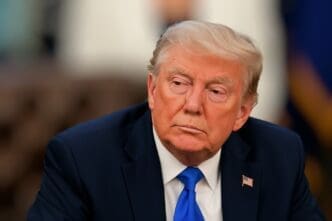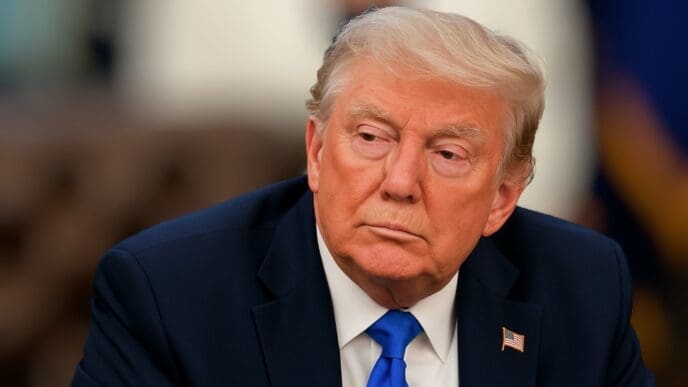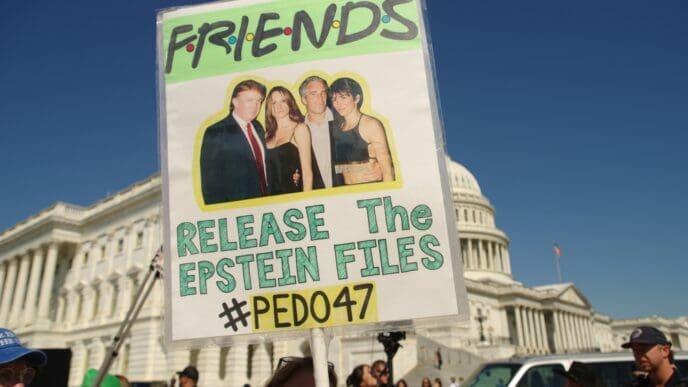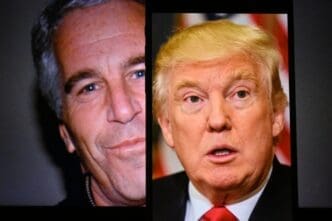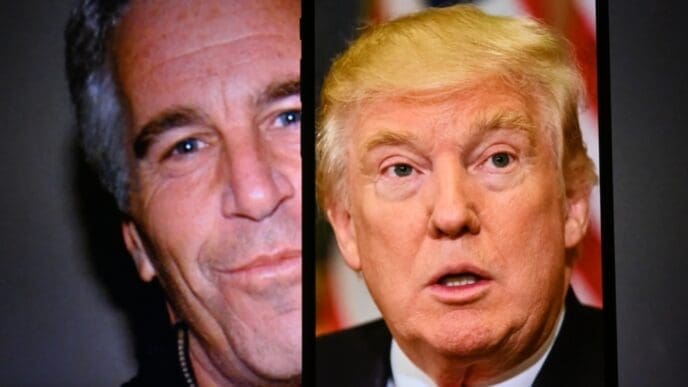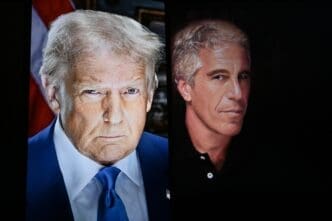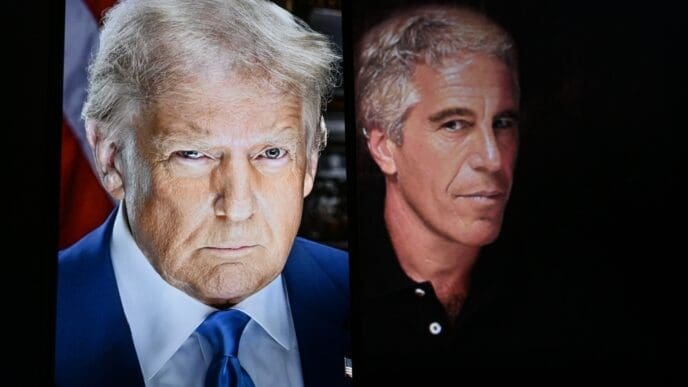Executive Summary
- President Trump declined to comment on a lewd birthday letter addressed to Jeffrey Epstein, calling it a “dead issue,” despite prior denials of its legitimacy and existence.
- The unexplained transfer of Ghislaine Maxwell to a minimum-security prison camp, despite her sex offender status, has drawn scrutiny.
- Trump’s administration faced criticism for delayed disclosure regarding Virginia Giuffre and an abrupt reversal on releasing further Epstein files, reportedly after his name was found within the documents.
The Story So Far
- President Donald Trump’s recent refusal to comment on the lewd birthday letter to Jeffrey Epstein follows a broader pattern of inconsistencies and reversals by his administration regarding Epstein-related matters, including shifting explanations about the letter’s authenticity, the unexplained transfer of Ghislaine Maxwell to a minimum-security prison, delayed admissions concerning Virginia Giuffre, and an abrupt reversal on releasing further Epstein files, particularly after reports indicated Trump’s name appeared in some documents.
Why This Matters
- President Trump’s repeated “no comment” and a pattern of shifting explanations, reversals, and delayed disclosures surrounding Jeffrey Epstein-related matters—including a disputed birthday letter, Ghislaine Maxwell’s unexplained prison transfer, and the administration’s pivot on releasing Epstein files—continue to fuel questions about transparency and consistency. These actions risk eroding public trust and sustaining intense scrutiny over his past associations and his administration’s handling of issues connected to the deceased sex offender.
Who Thinks What?
- President Donald Trump and his administration have generally declined to comment on new revelations regarding Jeffrey Epstein, denied the legitimacy of certain documents like the birthday letter, or offered explanations for actions such as Ghislaine Maxwell’s prison transfer and the decision not to release further Epstein files, citing reasons like victim protection.
- Critics, including some media outlets and Epstein victims/allies, point to a series of inconsistencies, shifting explanations, and delayed disclosures from Donald Trump and his administration regarding Epstein-related matters, suggesting a lack of transparency or a potential cover-up.
President Donald Trump recently declined to comment on a newly released image of a lewd birthday letter addressed to Jeffrey Epstein, stating he considered the matter a “dead issue.” This “no-comment” came after the letter, purportedly signed in Trump’s name for Epstein’s 50th birthday in 2003, was denied as legitimate by the President. The decision not to address the issue has drawn renewed scrutiny to a series of inconsistencies and reversals by Trump and his administration regarding Epstein-related matters.
Inconsistencies Regarding the Birthday Letter
The controversy surrounding the birthday letter has been prolonged by what critics describe as a series of shifting explanations from President Trump. After The Wall Street Journal first reported on the letter in July, Trump initially denied writing “pictures,” despite evidence of him drawing at the time. He later suggested someone else might have written the letter using his name.
However, a lawsuit filed by Trump against the Journal’s parent company claimed the letter did not exist at all, referring to it as the “nonexistent letter.” The recent release of the letter’s image confirmed its existence and its presence within Epstein’s estate. Furthermore, the White House claimed the signature on the letter was not Trump’s, a claim that has been challenged by comparisons to his personal signatures from the same period.
Ghislaine Maxwell Prison Transfer
Another point of contention is the unexplained transfer of Ghislaine Maxwell, Epstein’s alleged accomplice, to a minimum-security prison camp. This transfer, which occurred approximately 40 days ago, raised questions due to Maxwell’s status as a sex offender, which typically would make her ineligible without a waiver.
The timing of the transfer also coincided with Maxwell granting an interview to Deputy Attorney General Todd Blanche. Despite the release of interview transcripts, the administration has not provided a clear explanation for the transfer, while Trump had previously left open the possibility of clemency for Maxwell, though the White House later denied he was considering it.
Delayed Disclosure on Virginia Giuffre
The administration’s handling of information regarding Virginia Giuffre, a prominent victim of Epstein who testified about being recruited by Maxwell as a minor at Mar-a-Lago, has also faced scrutiny. Crisis communication strategies generally advocate for prompt disclosure of potentially damaging information, a path not taken in this instance.
President Trump ultimately acknowledged last month that he was aware in real time of Maxwell recruiting Giuffre from his property. He even suggested this awareness contributed to a falling out between him and Epstein decades ago. This admission, however, came after years of what critics describe as less than full disclosure.
Reversal on Epstein Files
The administration’s abrupt reversal on releasing further Epstein files has also drawn criticism for its timing and explanation. Initially, Trump and his allies had promoted the release of these files as a major transparency initiative. However, the Justice Department announced in early July that it would not release additional documents, citing the protection of victims and innocent individuals.
Critics have pointed out that the presence of victim and innocent names in the files should not have been a surprise. The timing of this reversal has been highlighted, as it reportedly occurred around May when Attorney General Pam Bondi informed Trump that his name was present in the files. Following this, FBI Director Kash Patel and Deputy Director Dan Bongino, who had previously promoted Epstein conspiracy theories, publicly shifted their stance, confirming Epstein’s death as a suicide. Trump’s initial denial of being told his name was in the files was also later contradicted, contributing to suggestions of a potential cover-up among some Epstein victims and allies.
The series of actions and statements by President Trump and his administration regarding Jeffrey Epstein and related individuals have continued to generate questions about transparency and consistency. From the handling of the birthday letter to the unexplained prison transfer of Ghislaine Maxwell and the delayed disclosures, these issues have sustained public and media scrutiny.



